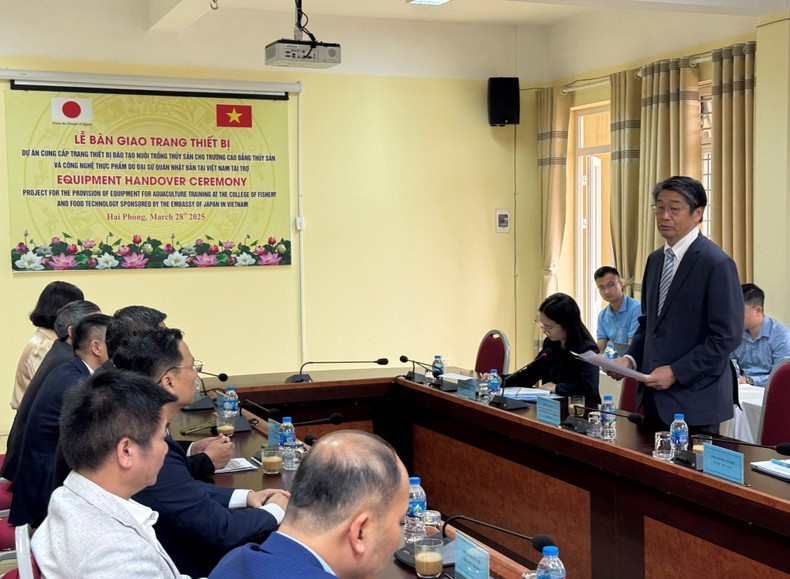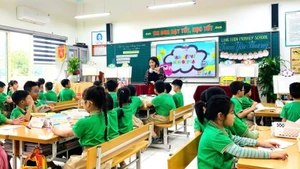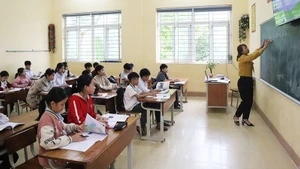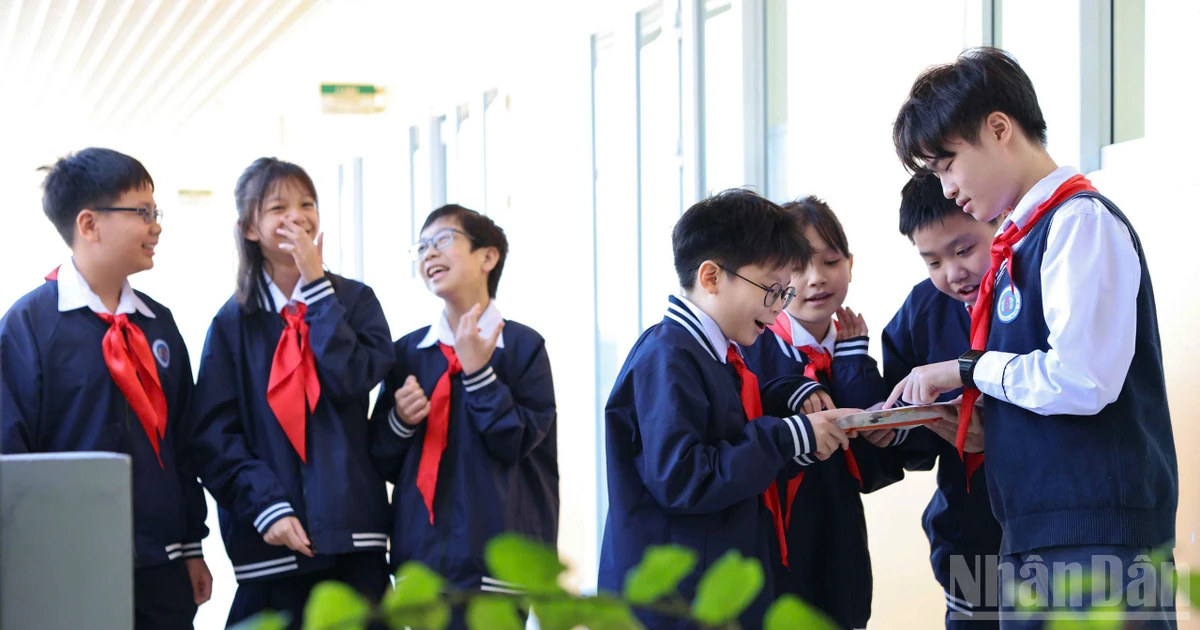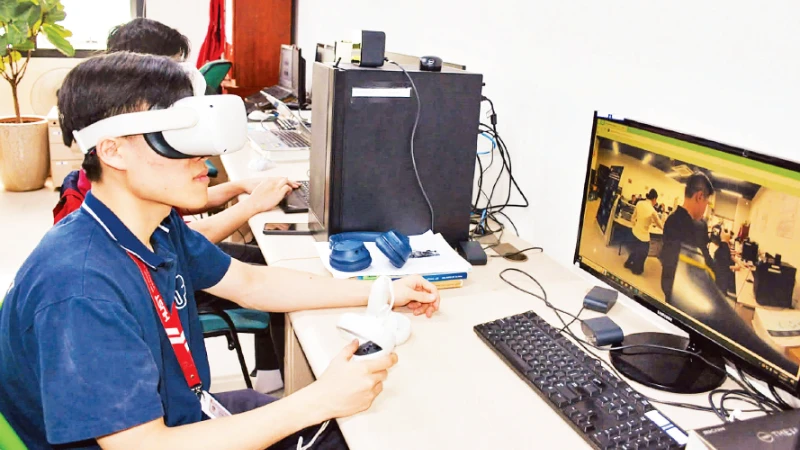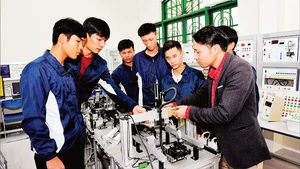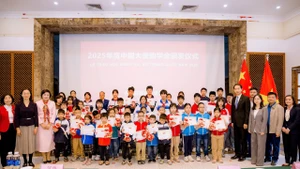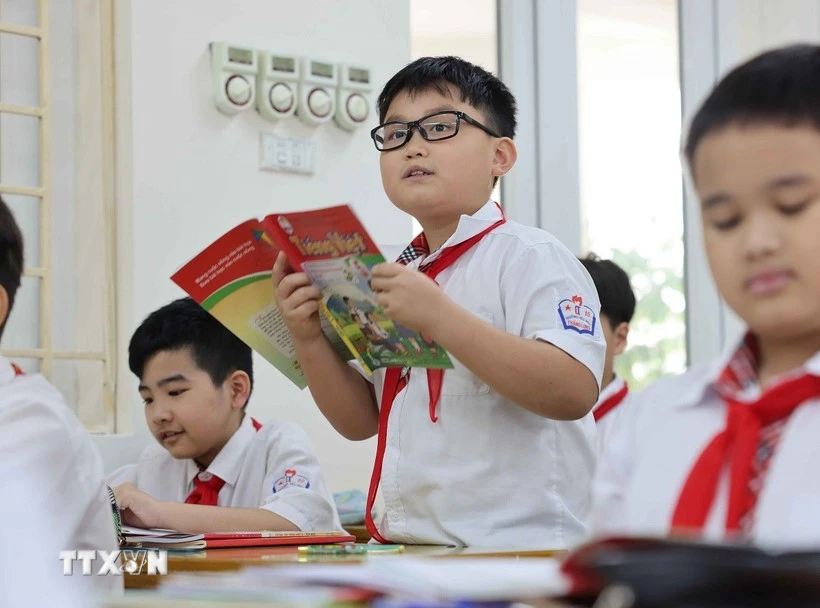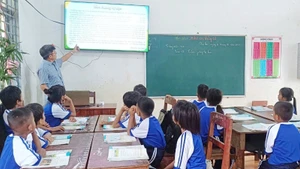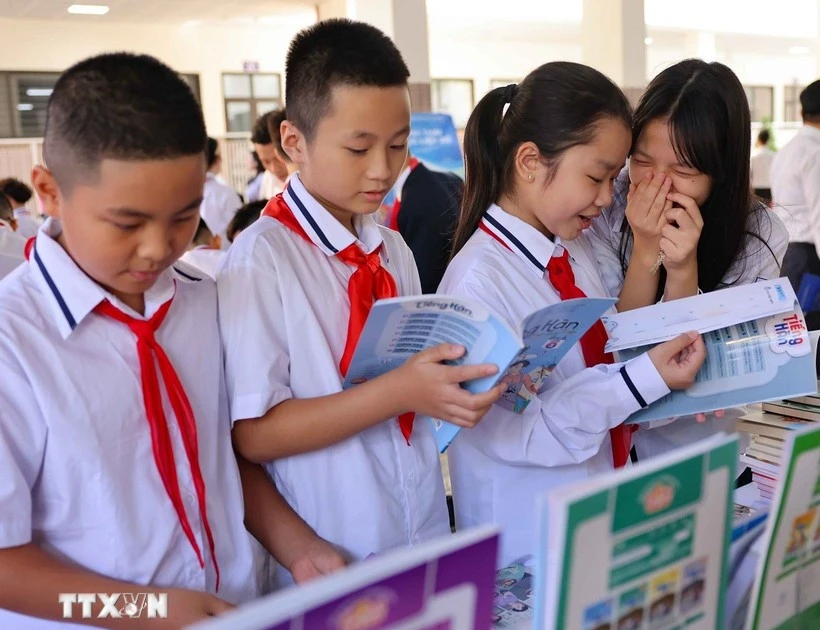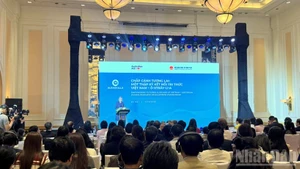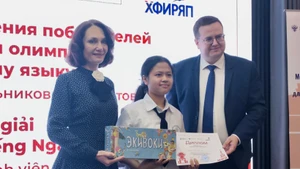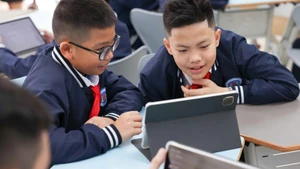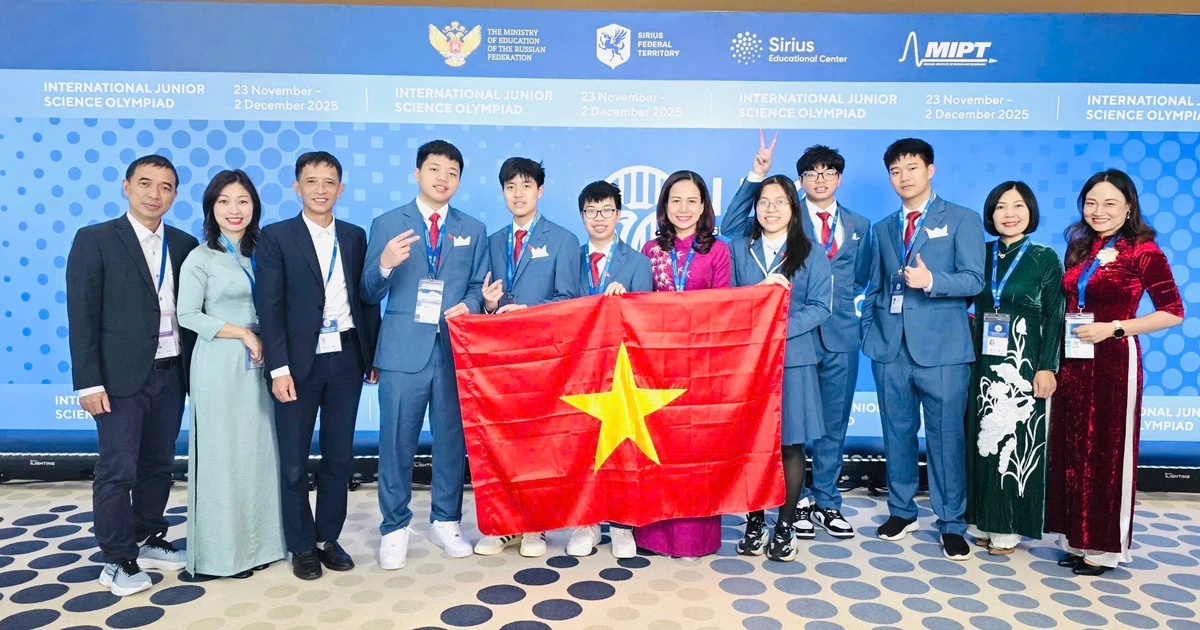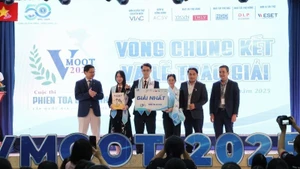The equipment includes practice cages, various feed processing machines, and offshore safety equipment.
The provision of the marine aquaculture training equipment will not only support the training of Vietnam’s aquaculture workforce but also contributes to restructuring the fishery sector from catching to farming in order to protect Vietnam’s marine resources.
Speaking at the handover ceremony, Japanese Ambassador to Vietnam Ito Naoki expressed his hope that with the donated equipment will help make practical training more effective, thereby training an aquaculture workforce with broader knowledge and experience while contributing to the development of Vietnam’s fishery sector.
The College of Fisheries and Food Technology has many students from low-income families in agricultural and fishing villages, mainly in northern Vietnam.
The college plans to train an aquaculture workforce to meet the Vietnamese government’s policy of shifting from fishing to farming and has developed a two-year course and a short vocational course on aquaculture techniques for working people.
Currently, about 100 students are enrolled in the aquaculture technical course, but due to inadequate equipment, the college can only provide classroom theory training without meeting practical training needs.
In addition, the college is planning to implement sea-based practical training in collaboration with a regional aquaculture company, however, due to lack of training equipment, students cannot learn to use the equipment, which is a prerequisite for practical training, therefore practical sessions cannot be carried out in a smooth and effective manner.
As such, the equipment project will help improve the training environment for this sector, including practical training at the college, enhancing the quality of education, thereby contributing to improving employment opportunities for fishermen, improving income and creating stable livelihoods.
